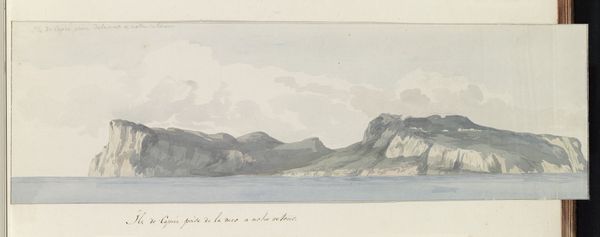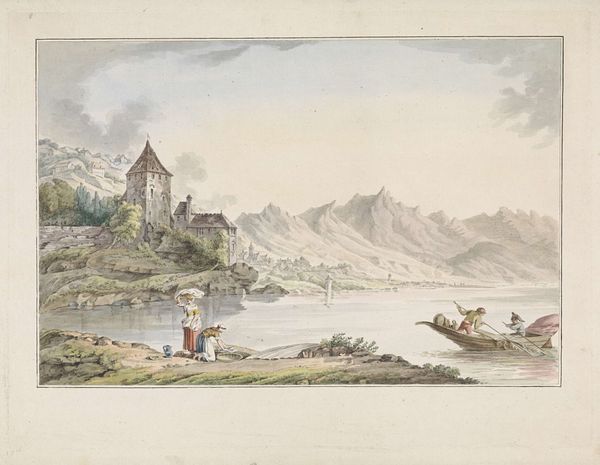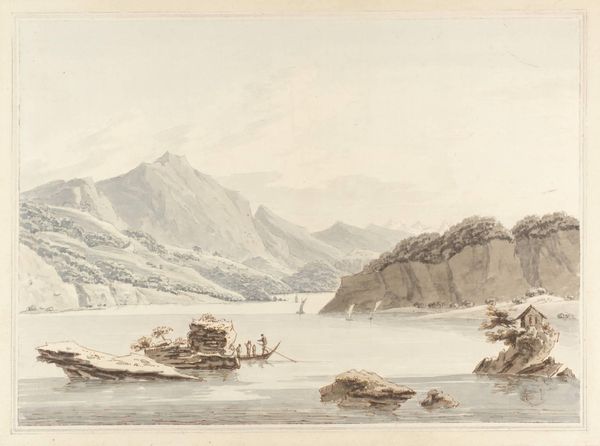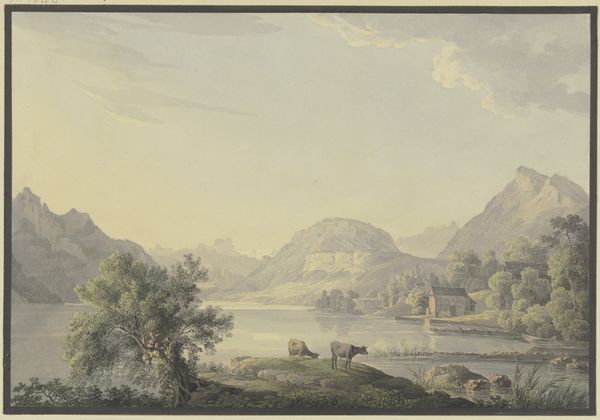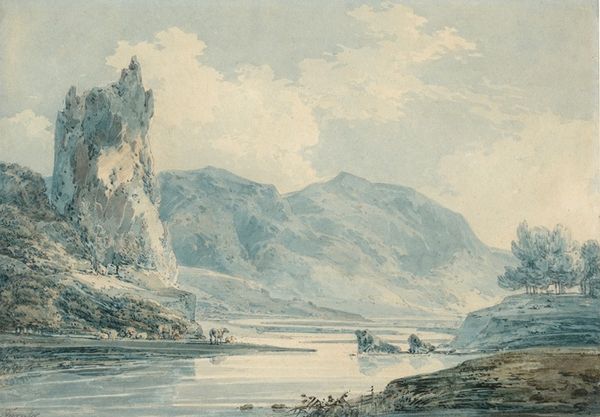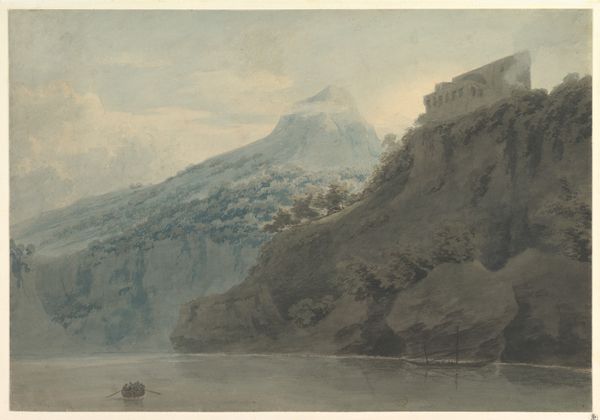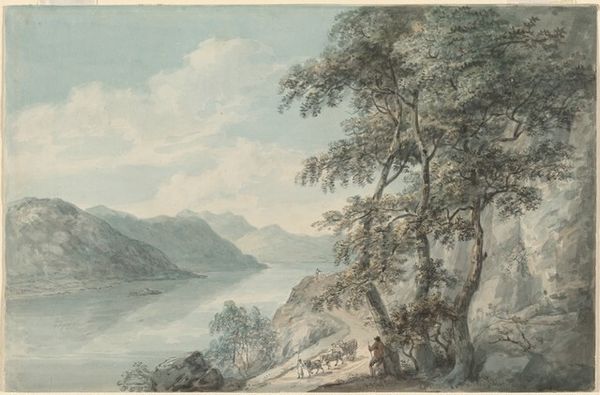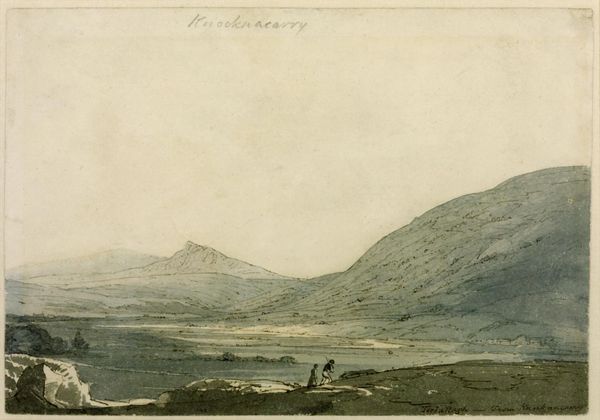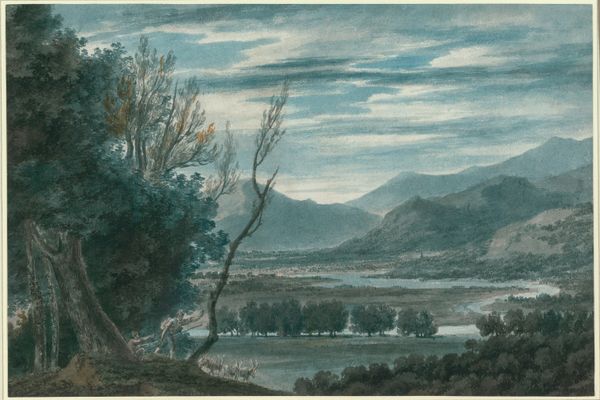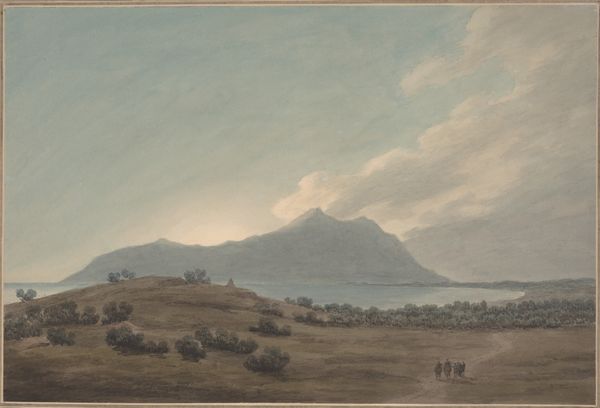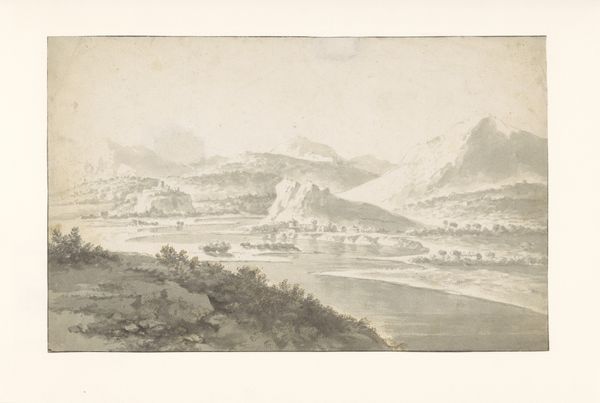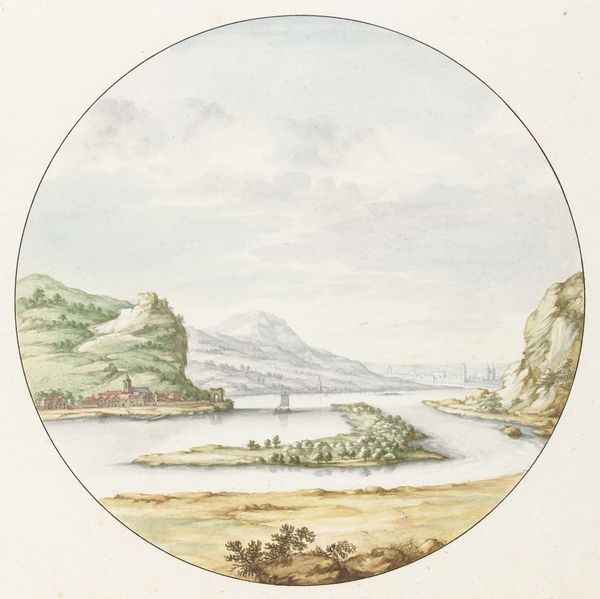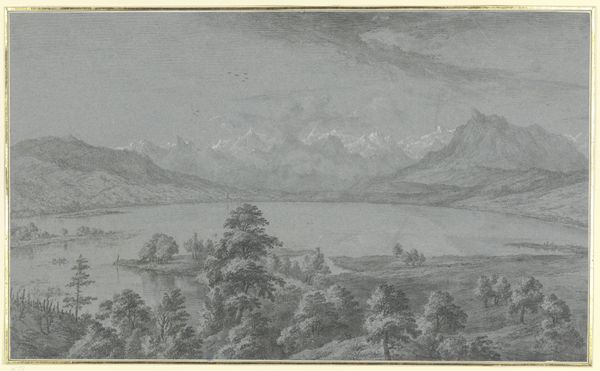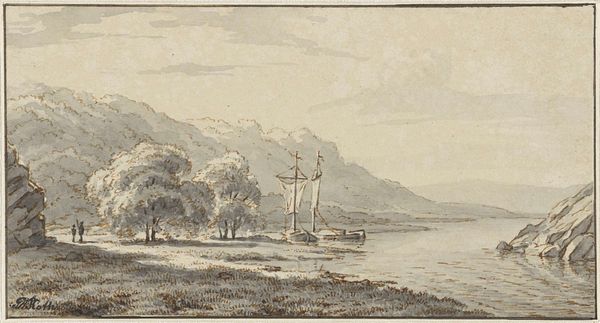
tempera, plein-air, watercolor
#
tempera
#
plein-air
#
landscape
#
oil painting
#
watercolor
#
romanticism
#
mountain
#
watercolour illustration
Copyright: Public domain
Thomas Girtin painted this watercolor of a Westmorland lake and mountains around the turn of the 19th century. Notice how the mountains, softened by the light and distance, dominate the scene, their peaks echoing in the clouds above. Mountains, throughout history, have held profound symbolic weight. In ancient cultures, from the Greeks with Mount Olympus to the Hebrews with Mount Sinai, mountains were seen as sacred sites, places where the earthly and divine realms met. The upward-pointing form of mountains also symbolizes aspiration, a striving towards higher knowledge or spiritual enlightenment. Consider how the Romantics, contemporaries of Girtin, like Caspar David Friedrich, used mountain imagery to evoke feelings of awe and the sublime, reflecting on the insignificance of humanity in the face of nature's grandeur. This collective memory of mountains as places of spiritual significance continues to resonate, shaping how we perceive and engage with these monumental forms, imbuing them with a psychological weight. The mountain's symbolic cycle continues, each generation finding new layers of meaning in its timeless presence.
Comments
No comments
Be the first to comment and join the conversation on the ultimate creative platform.
